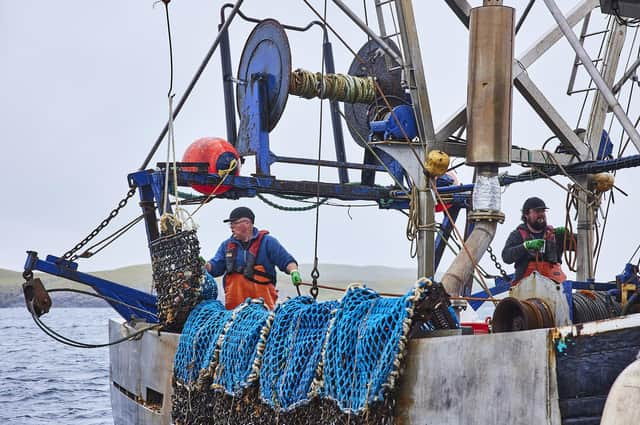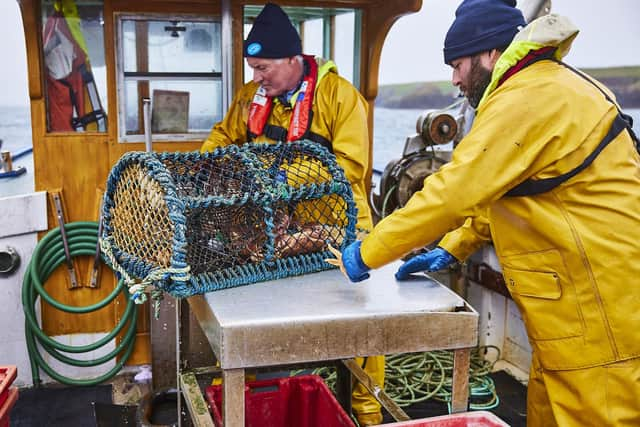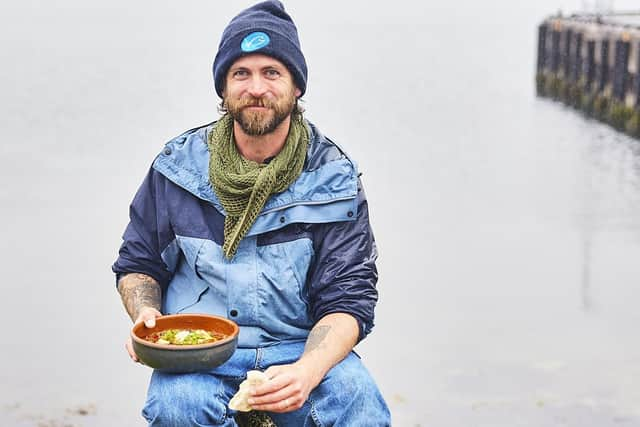Sustainable Scotland: Shetland fishermen on the big screen in campaign to highlight sustainable seafood


Scottish fishermen are playing a starring role in a new television advert for a nationwide campaign to support sustainable fishing practices and promote healthy seafood stocks.
The commercial has been created for the Marine Stewardship Council (MSC), an international non-profit organisation which sets science-based standards for sustainable practices and runs a globally recognised ecolabel and certification program to help guide consumers.
Advertisement
Hide AdAdvertisement
Hide AdIt features fishermen from Shetland who operate an acclaimed local initiative which aims to balance commercial needs with conservation of the marine environment and has been released to coincide the MSC’s annual Sustainable Seafood Week, which runs until Friday.
It will be broadcast on a number of platforms, including Channel 5, Food Network, Sky Arts, Discovery, Nat Geo, Sky Nature, Wild and Animal Planet, and can be seen on YouTube.
“It’s such a small community here that scallop fishing keeps everything going,” said Whalsay scallop fisherman George Andrew Williamson, who features in the advertisement.
“If we keep it sustainable, we actually have a future.”


The Shetland scallop and brown crab fishery gained MSC certification in 2012, which means it maintains healthy fish stocks and minimises its environmental impact.
It is the only brown crab fishery in the world to have been certified as sustainable, so the islanders are leading the way in best practice fisheries management.
Commercial fishing for lobsters, crabs, scallops, queenies, whelks, clams, razors, cockles, mussels and oysters from the tideline up to six miles out from the coast is regulated by the pioneering Shetland Shellfish Management Organisation.
This is done through the issue of licences and implementation of measures that ensure recovery of stocks and long-term sustainability.


The approach has been commended by experts, with suggestions it could be rolled out across the globe.
Advertisement
Hide AdAdvertisement
Hide AdKatie Keay, senior fisheries outreach manager at the MSC, said: “It’s fantastic to see the Shetland scallop and brown crab fishery being highlighted in this year’s Sustainable Seafood Week.
“The fishermen work really hard to ensure that they fish sustainably, so seafood can be around for generations to come.
“I hope this week will inspire people to look out for the blue MSC ecolabel in supermarkets to support these small but important fishing communities.”
As part of the campaign, celebrity chef, television presenter and sustainable lifestyle expert James Strawbridge, who has recently become an ambassador for the MSC, has also been in Shetland to shoot a series of cook-along shows.
The programmes, Sustainable Seafood Suppers, were shot on location on the island of Whalsay and West Burrafirth on the Shetland mainland.
The shows will be aired across the MSC’s digital channels and demonstrate meals including a smoky crab stew with pearl barley and Shetland bannock, as well as smoked scallops with haggis.
The chef will also be joined by local fishermen to help pass on essential seafood skills such as how to shuck scallops and remove crab meat from the shells.
He said: “Shetland scallops and brown crab are the perfect seafood choices for my Sustainable Seafood Suppers this year and knowing they were sourced from local, certified sustainable fisheries that support rural, hardworking communities is a real plus.
Advertisement
Hide AdAdvertisement
Hide Ad“It’s brilliant to be able to cook great food and reduce your ocean impact all at once.”
The voiceover on the short film, which is titled All hands on Deck and shows the fishermen out in their boat, concludes: “When we look after the ocean, the ocean looks after us.”
A recent study carried out for the MSC found that 70 per cent of people in the UK agreed that their choices of which fish and seafood to buy had an impact on the health of the world’s oceans, while 77 per cent said only seafood from sustainable sources should be eaten.
Comments
Want to join the conversation? Please or to comment on this article.
